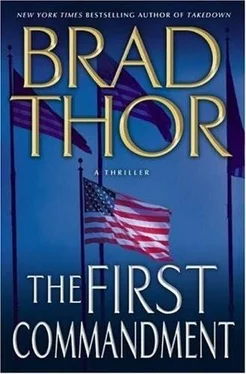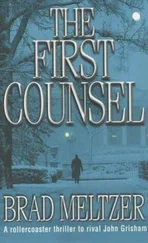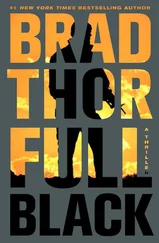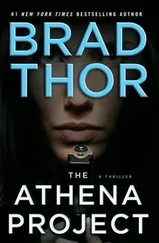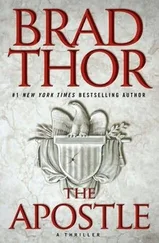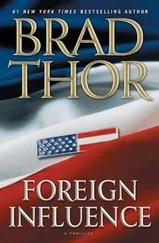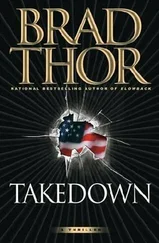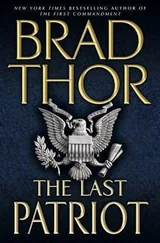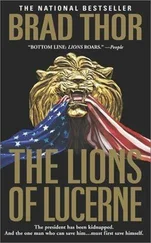Their time was short, so Morrell spoke quickly. “It is the stated policy of the United States government never to negotiate with terrorists. We all know it’s the nation’s first and most important commandment in the war on terror- Thou shalt not negotiate with terrorists. ”
Harvath was well aware of the commandment. “But somebody broke it,” he guessed as he thought about the five prisoners released from Guantanamo.
Morrell nodded. “There is an exception to every rule.”
“Was the president directly involved in the prisoner release?”
Morrell looked toward the door and then back at Harvath. “Yes.”
Harvath had suspected all along that the president had been involved, but now he had confirmation.
“What I am about to tell you,” continued Morrell, “stays in this room. Your current status as a fugitive notwithstanding, you are still bound by your oath and the National Security nondisclosure agreements you signed before going to work at both the White House and DHS. Is that clear?”
“ Crystal,” replied Harvath.
Morrell took a deep breath. “There is only one instance where the United States will break its own rule of not negotiating with terrorists.”
In all Harvath’s experience he had never seen the First Commandment broken. He couldn’t even begin to imagine what would qualify as an exception.
Harvath had seen many horrible things in his career as a counterterrorism operative. A part of him questioned whether he truly wanted to know what would warrant such an exception, but he needed to know why the president was holding him back from protecting the people he cared about. He needed to know why some sick terrorist had been granted blanket immunity to do whatever he wanted to innocent American citizens.
“The exception,” said Morrell, “is when a terrorist or terrorist organization has targeted children.”
“You mean whoever has been carrying out these attacks targeted kids as well?”
“No. The five released from Guantanamo were still there when the attack in question took place. The group that brokered their release used the attack as leverage to get them out. I know you have been through a lot, but if it’s any consolation, the president had absolutely no choice in this.”
Harvath wasn’t ready to give Rutledge a pass just yet. He needed to hear more and signaled for Morrell to continue.
“Two days before the Gitmo five were released, a school bus filled with children as young as five years old went missing in Charleston, South Carolina. The terrorists threatened to begin killing a child every half hour until their demands were met.
“An immediate news blackout was ordered and federal authorities went into overdrive to find the bus. Satellites were retasked, the FBI’s Hostage Rescue Team was activated, and members of Delta Force, SEAL Team Six, SEAL Team Eight, and even elements of the CIA were brought in. This was a direct attack upon our nation, the psychological impact of which could have been extremely severe. The president stopped at nothing.
“To demonstrate how serious they were, the terrorists killed the bus driver and left her behind the wheel of the abandoned bus. When the report came in about the dead driver and the fact that we were no longer looking for a bright yellow school bus, people got even more worried. Either the terrorists had the children at one central location, or worse, the group had been broken up and taken to several different locations.
“Images of the Beslan school massacre in Russia were running rampant through everyone’s mind. Everybody knew that trying to take the children back by force could be a horrendous and deadly mistake. If the terrorists were attacked, there was little doubt that they would martyr themselves and take the children with them. There was absolutely no question, the United States ’ only option was to negotiate.
“Originally, the terrorists wanted all of the prisoners released from Guantanamo. Slowly, the negotiators whittled it down to five and agreed that the president would sign some sort of letter promising, among other things, that all the secret detention facilities the United States was using around the world would be shut down, that prisoners at Gitmo would be provided with better food and medical care and more frequent visits from the Red Cross, that all prisoners would be brought to trial for their alleged crimes, and that these trials would be transparent, with international monitors present to vouch for their legality.”
“And the president went for that?” asked Harvath.
“He had no choice. The terrorists had put a gun to his head and they were ramping up to kill their first child. Their leader directed the president to a website where camera phone photos of the child the hostage takers had selected to be the first to die were posted. From what I was told, the photo would have broken your heart. They picked the youngest and cutest of the bunch. The image would have played very, very badly on the news.
“The NSA and several other agencies went to work on the website, while the president huddled with his advisors in the Situation Room. He had a very difficult and potentially historic decision to make.
“And we all know how it ended,” responded Harvath.
Morrell held up his hand. “No you don’t. It wasn’t over, not by a long shot. For the United States, the trouble had only just begun.”
Harvath didn’t know what to think, or what to feel, for that matter. He’d figured that the president had been motivated to do the right thing for the country and that was certainly what he’d done in this horrible scenario, but it still didn’t explain why he’d sidelined him.
He didn’t know if Rick Morrell had the answers he was seeking or not, but he knew each piece of information he got would bring him one step closer to solving the puzzle. Harvath knew they didn’t have much time left, so he decided to hold his questions and let Morrell finish.
Morrell was obviously concerned with the time as well. He glanced at his watch for the third time and then said, “The secretary of defense suggested to the president that a highly classified tracking program be used to trace the five men once they were released from Guantanamo.”
“Via a radioactive isotope,” said Harvath, sensing where this was going. “I’m familiar with it.”
“The U. S. didn’t know who it was negotiating with. And it knew even less about the relationship among the men it was about to free. If they could track the men, it was believed they could locate the organization responsible for the bus hijacking and either bring them to justice or at the very least exact some sort of revenge.
“The only problem was that somehow the other side knew about the blood-spiking program and fully transfused the five detainees in flight. They then used the extracted blood to lead the CIA on a fucked-up chase. The blood wound up in several containers that were tossed in multiple dumpsters and the trunks of several cars.
“The DOD blamed the CIA for losing the men, and the CIA blamed the DOD for hanging their hat on a program that wasn’t as ultra-top-secret as they’d thought.”
“So the U. S. lost them. I know that much,” said Harvath.
“What you don’t know is that the terrorists placed a few conditions on the deal they struck with the president.”
“Such as what?”
“Such as the men we released were never to be hunted, harmed, or reincarcerated,” replied Morrell. “As an insurance policy, the terrorists provided surveillance photos of over a hundred school buses from across the country. The message was clear. If we welshed, they’d be back, and things would be a lot worse the next time. We’d be forced to suffer a gruesome attack against our children and this time there’d be no negotiating.”
Читать дальше
